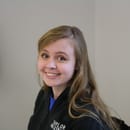Last Semester, I wrote an article about how ADD presents itself differently in women. In summary, ADD typically presents itself more in the inattentive form which causes it to frequently go unnoticed. In addition, societal pressures push girls and women to have good grades and be more well-rounded. The symptoms of inattentive ADD do not present very loudly, which causes women to typically go undiagnosed. According to a study on gender disparities with respect to ADD diagnosis, “girls may consistently be underidentified and underdiagnosed mostly explained by differences in the expression of the disorder among boys and girls.”
I wrote about the nuances of ADD in women last semester because I was genuinely interested in the differences of diagnoses between the gender and what factors caused the large disparity in the amount of diagnoses. However, during my research, the symptoms of ADD sounded all too familiar. At that point in the semester, I was spending hours on end on the 4th floor of the library in a single cubicle, trying to focus. In addition, I could never pay attention in lecture classes. My mind would wander to any topic besides molecular biology. I felt like I spent half of my life in the library, and I always left with little work to show for it. I could feel myself getting off task, with my mind going a thousand miles a minute. It became incredibly frustrating because I felt like nothing could get my mind in the right brain space to study, and the work for my classes certainly didn’t slow down. After I received my second organic chemistry test grade, which was lower than I care to admit, I called my dad out of frustration and asked if I could be evaluated for ADD, as it is a hereditary condition that is present in my immediate family.
I finished last semester and got an appointment with a clinical psychologist while I was home for winter break. My greatest fear was that there would be nothing wrong with me. I thought that I was wasting everyone’s time for the doctor to simply tell me that I was a terrible student and just had to try harder.
Upon entering the evaluation, I was asked a series of questions about my home and school life and the symptoms I had been facing. The psychologist evaluated my symptoms against the DSM-V list of symptoms for ADD and asked me to note if these symptoms caused significant problems for me in my adolescence as well. Further, she decided that it would be worth it to fully evaluate me for ADD. I took an attention test called the IVA+Plus, which used small repetitive tasks to measure attentiveness and stamina. In addition, I had to fill out several questionnaires that asked me about my thought habits and how they’d become a problem in my daily life. The person that was closest to me, my father, had to fill out a questionnaire on my habits as an adolescent and now. Finally, the psychologist gave me the Wechsler Adult Intelligence Test to test my IQ. She wasn’t interested in my IQ but rather, in the way that my brain worked. After I took the test, she hypothesized that I would do poorly on the Working Memory and Processing Speed components of the test because people with ADD historically struggle in those areas. After all of the testing had concluded, every test clearly said that I had the inattentive form of ADD.
This means that I was diagnosed with ADD at the age of 19, in my second year of college. I felt especially relieved to know that all of my frustration and my evaluation wasn’t for nothing. The diagnosis began to explain things about my personality that I never had answers for prior. The diagnosis meant that I could get accommodations and medication to help me focus in class. Further, I thought that there was no chance that I could be diagnosed so late. However diagnoses are missed incredibly often in females it only made sense that I was diagnosed in my late teens. Good grades and school involvement should not be considered a litmus test for if an ADD evaluation is necessary.


